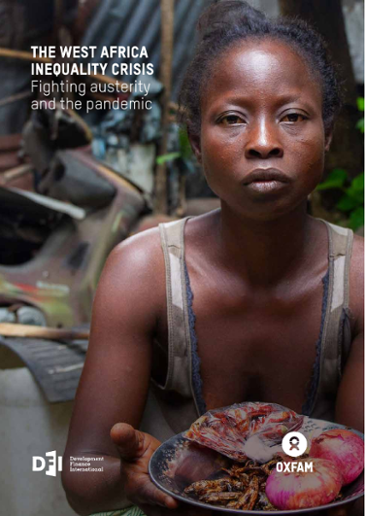
The COVID-19 pandemic has revealed and worsened the depth of inequality in West Africa. In 2021, when COVID-19 infections are rising in West Africa, the critical support health and socioeconomic programmes put in place by most governments in 2020 are being rolled back and replaced with austerity.
Many governments are following advice from the IMF and World Bank, reminiscent of the severe cuts in spending imposed under the structural adjustment policies of the 1980s and 1990s. However, as this paper argues, the pandemic offers West African governments a once-in-a-generation opportunity to invest heavily in inequality-busting policies by boosting public spending (especially on healthcare, education and social protection), making tax systems more progressive, and tackling joblessness and precarious work.
This report uses the Commitment to Reducing Inequality (CRI) Index framework devised by Oxfam and Development Finance International to assess the policies of West African governments. The CRI highlights that West African governments are again the least committed to reducing inequality in Africa.